Rushdie, Bolton, and Iran's Revolutionary Guard, explained
Who is behind the recent assassination plots against high-profile Americans?

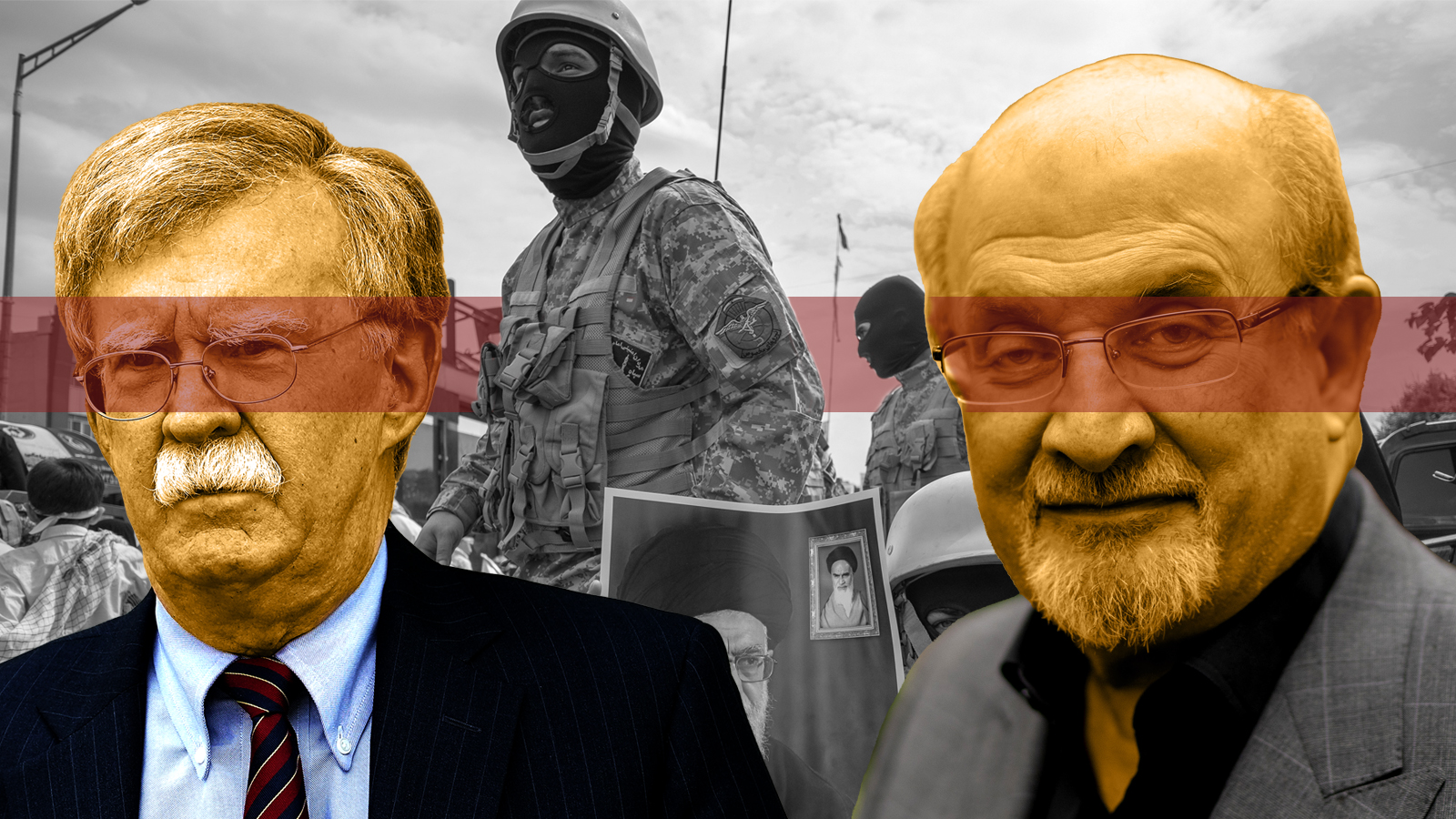
A free daily email with the biggest news stories of the day – and the best features from TheWeek.com
You are now subscribed
Your newsletter sign-up was successful
Salman Rushdie and John Bolton are both still alive today — but that's possibly no thanks to Iran's Revolutionary Guard Corps.
Intelligence officials say that the man accused of stabbing novelist Salman Rushdie on Friday in New York was "in direct contact with members of Iran's Islamic Revolutionary Guard Corps on social media," Mitchell Prothero reports for Vice News. While "there's no evidence Iranian officials were involved in organizing or orchestrating the attack" on Rushdie, one official said the stabbing appeared to be a "guided attack," in which an intelligence service "talks a supporter into action, without direct support or involvement in the attack itself."
The assault on Rushdie came two days after federal prosecutors charged Shahram Poursafi, a member of the corps, with plotting to assassinate John Bolton, the former national security adviser to Donald Trump who is well-known for his hardline views on Iran. Former Secretary of State Mike Pompeo was also reportedly a target of the scheme. "While much cannot be said publicly right now, one point is indisputable: Iran's rulers are liars, terrorists, and enemies of the United States," Bolton said.
The Week
Escape your echo chamber. Get the facts behind the news, plus analysis from multiple perspectives.

Sign up for The Week's Free Newsletters
From our morning news briefing to a weekly Good News Newsletter, get the best of The Week delivered directly to your inbox.
From our morning news briefing to a weekly Good News Newsletter, get the best of The Week delivered directly to your inbox.
Why would the Revolutionary Guard be targeting these men? Here's everything you need to know:
What is the Revolutionary Guard?
The Islamic Revolutionary Guard Corps — which includes the clandestine Quds Force — is "one of the most powerful paramilitary organizations in the Middle East," the Council on Foreign Relations says in a 2019 explainer. After the 1979 revolution that overthrew the shah and installed an Islamic government, the Ayatollah Ruhollah Khomeini set up the IRGC "to protect the new regime from a coup d'état, such as the one in 1953 that ousted the democratically elected government of Mohammed Mossadeq and restored the shah to power." The organization is charged with protecting Iran's Islamic government against all threats, and operates "beyond the bounds of the law and the judiciary." The corps commands at least 125,000 troops — estimates vary — outside the formal Iranian military structure, and includes naval, air force, and cyber command resources. It also runs the Basij Resistance Force, whose main function has been to crack down, sometimes brutally, on the regime's domestic opponents.
But the corps' influence can also be felt beyond Iran's borders. The organization "exerts influence elsewhere in the Middle East by providing money, weapons, technology, training, and advice to allied governments," the BBC says in a 2020 overview, and is known to back terrorist groups such as Lebanon's Hezbollah movement and Palestinian Islamic Jihad. (The force is also believed to have backed Hezbollah's 1994 bombing attack on a Jewish center in Buenos Aires that killed 85 people.) Its attempts at violence have even reached American shores: "In 2011, the Quds Force was allegedly involved in a plan to assassinate the Saudi ambassador to the U.S. by bombing a restaurant in Georgetown." Its power isn't just in its muscle, the BBC notes: "The IRGC is also thought to control around a third of Iran's economy through a series of subsidiaries and trusts."
Why are American leaders so concerned?
Arguably, the U.S. has been at war with the IRGC for much of the last two decades. After the United States invaded Iraq in 2003, the Quds Force "emerged as a shadowy but deadly threat to American troops," The Washington Post's William Branigin reported in 2011. It backed Iraqi Shiite militias, and the Pentagon said the organization participated in "smuggling sophisticated bombs and other weapons into Iraq for use against American troops."
A free daily email with the biggest news stories of the day – and the best features from TheWeek.com
That conflict came to a head during the Trump Administration. In 2019, Trump designated the corps as a "foreign terrorist organization," a status that was accompanied by wide-ranging sanctions against the group and its members. (President Biden has left that designation in place.) And in January 2020, Trump ordered the assassination of Quds Force Commander General Qassem Soleimani, saying the general was "developing plans to attack American diplomats and service members in Iraq and throughout the region." That act continues to reverberate: The alleged assassination plot against John Bolton was reportedly intended as an act of vengeance for the Soleimani killing.
What will be the fallout from recent events?
The attack on Rushdie and the plot against Bolton (as well as an apparent assassination attempt on an Iranian-born journalist living in New York) come at the same time the United States is trying — and mostly failing — to re-establish an agreement to curtail Iran's nuclear program. That goal now will be harder to obtain.
Those incidents "have bolstered detractors of the nuclear deal," Nahal Toosi reports for Politico. "The news also underscores the tricky nature of the U.S.-Iran relationship, which is adversarial and deadly — even when the two countries are negotiating sensitive issues." Bolton certainly thinks it is time to end the negotiations. "The ayatollahs' malevolence is comprehensive, with nuclear weapons, assassination, and terrorism all elements in their full spectrum of capabilities," he wrote Monday in The Washington Post.
But Biden is "not indicating he will walk away from efforts to restore the nuclear agreement," Toosi reports. The underlying idea? Iran's government — and the IRGC in particular — is deadly enough with assassins and other thugs at its disposal, one anonymous official told Politico, but nuclear weapons would only make the government more dangerous. The weapons "would make all the other very serious problems we have with them — and we have many — far worse," the official said. So the negotiations will continue. Will the assassination attempts keep coming, as well?
Joel Mathis is a writer with 30 years of newspaper and online journalism experience. His work also regularly appears in National Geographic and The Kansas City Star. His awards include best online commentary at the Online News Association and (twice) at the City and Regional Magazine Association.
-
 Ex-South Korean leader gets life sentence for insurrection
Ex-South Korean leader gets life sentence for insurrectionSpeed Read South Korean President Yoon Suk Yeol was sentenced to life in prison over his declaration of martial law in 2024
-
 At least 8 dead in California’s deadliest avalanche
At least 8 dead in California’s deadliest avalancheSpeed Read The avalanche near Lake Tahoe was the deadliest in modern California history and the worst in the US since 1981
-
 Political cartoons for February 19
Political cartoons for February 19Cartoons Thursday’s political cartoons include a suspicious package, a piece of the cake, and more
-
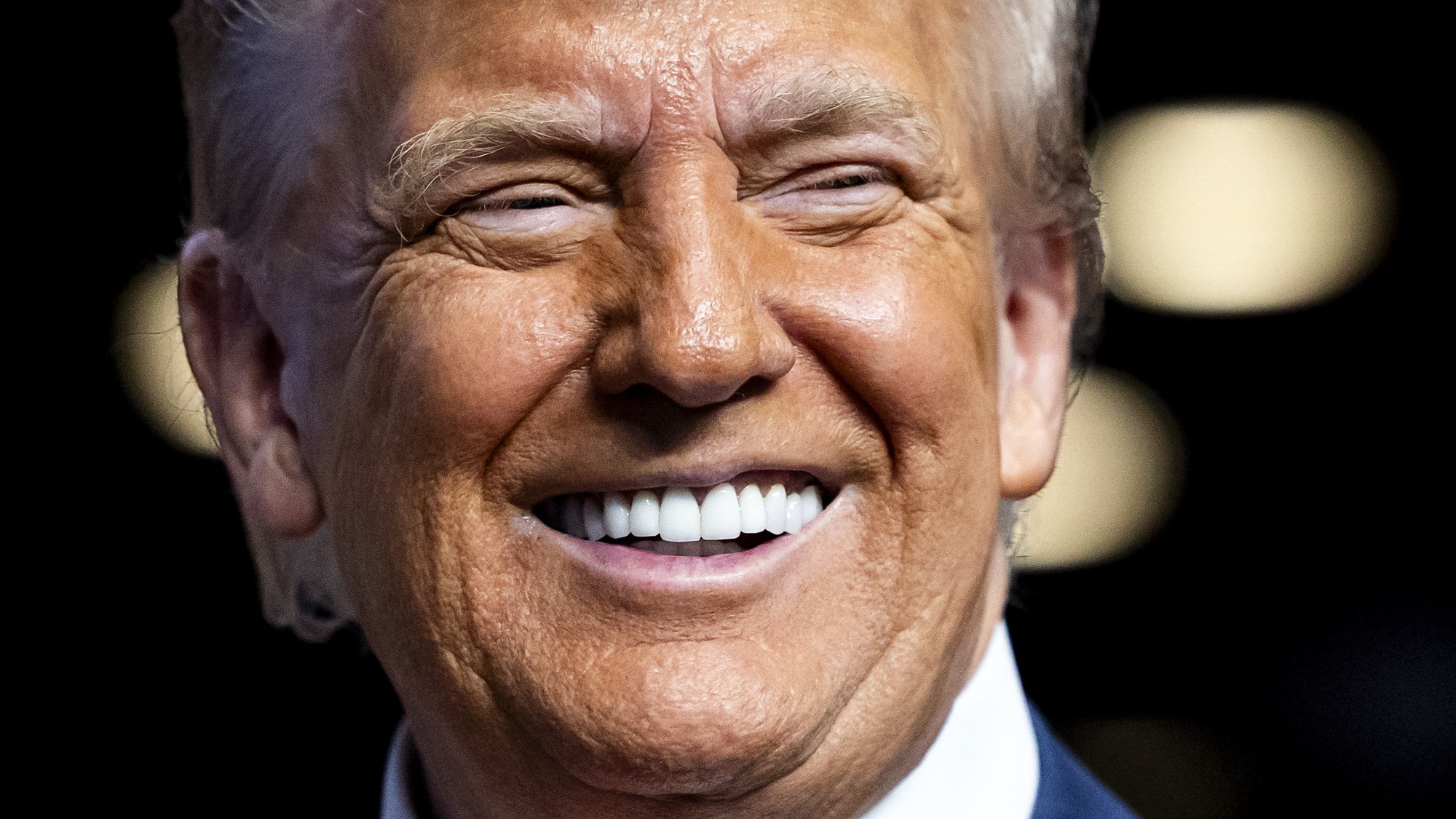 How long can Nato keep Donald Trump happy?
How long can Nato keep Donald Trump happy?Today's Big Question Military alliance pulls out all the stops to woo US president on his peacemaker victory lap
-
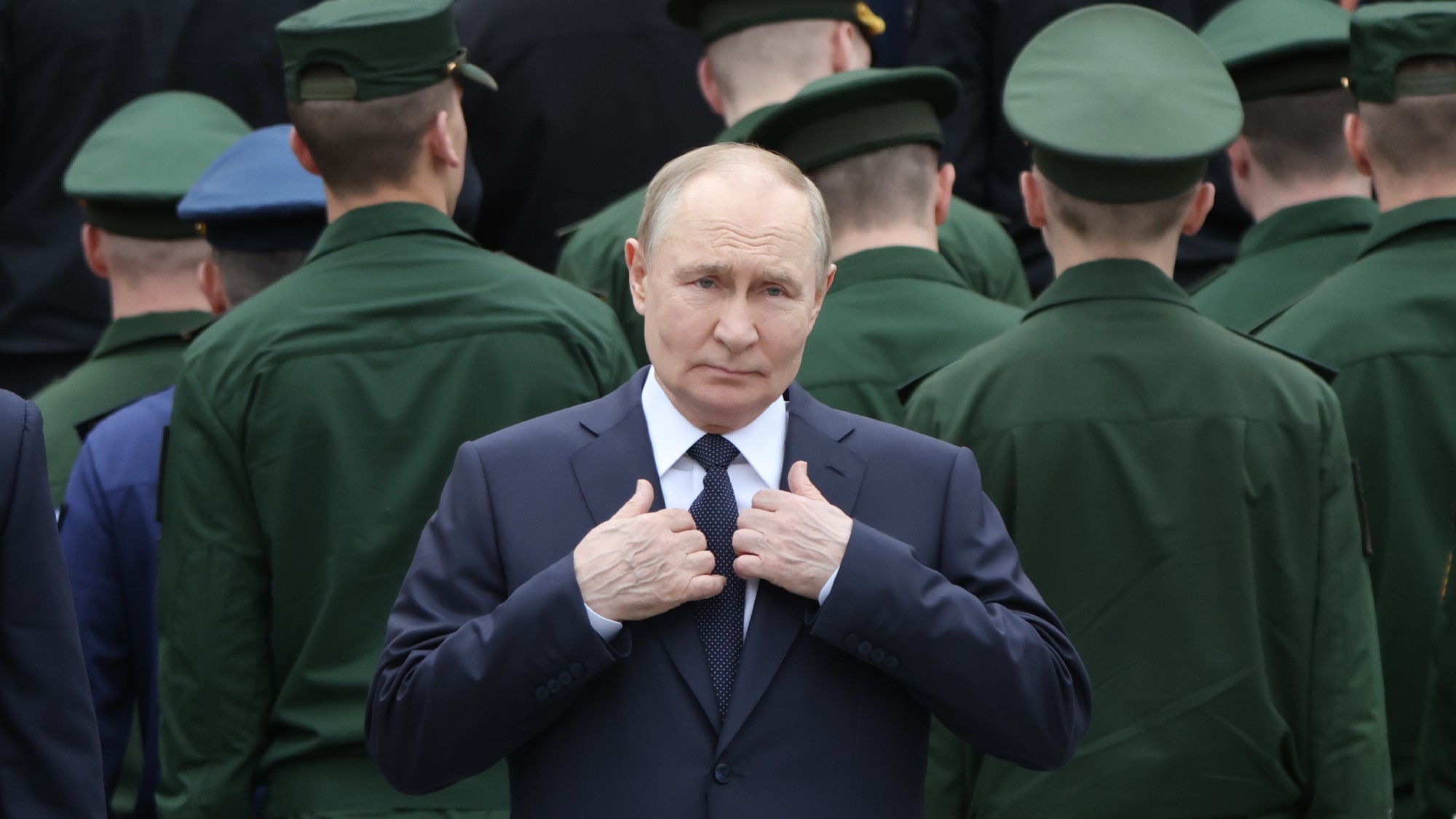 How far would Russia go for Iran?
How far would Russia go for Iran?Today's Big Question US air strikes represent an 'embarrassment, provocation and opportunity' all rolled into one for Vladimir Putin
-
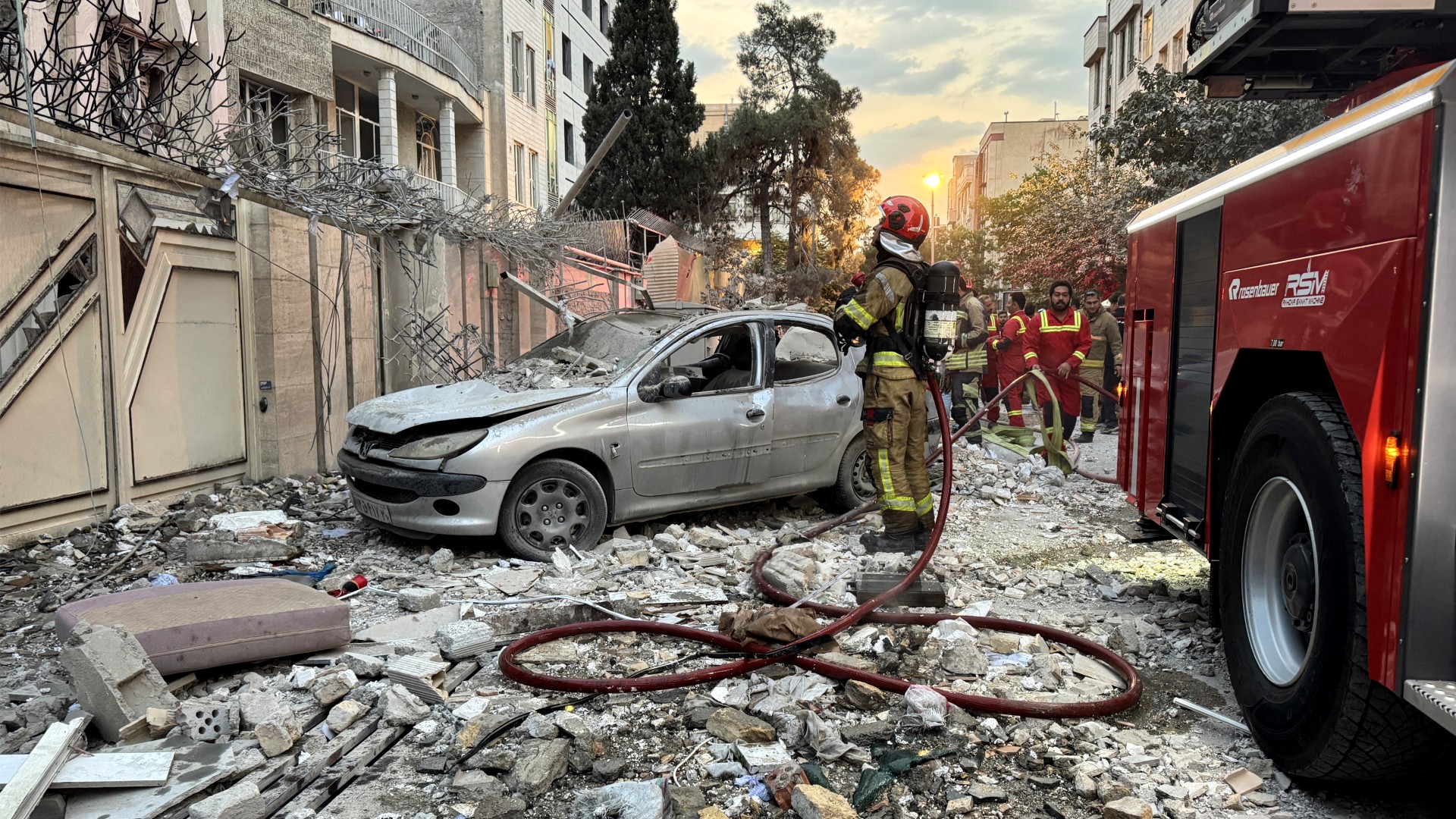 How the Israel-Iran conflict broke out
How the Israel-Iran conflict broke outThe Explainer Israel's strike on Iran's nuclear and missile programmes was years in the planning
-
 Will the UK get involved in the Israel-Iran conflict?
Will the UK get involved in the Israel-Iran conflict?Today's Big Question Keir Starmer is 'walking a tightrope' in helping Israel limit Tehran's nuclear capabilities without being seen to do so
-
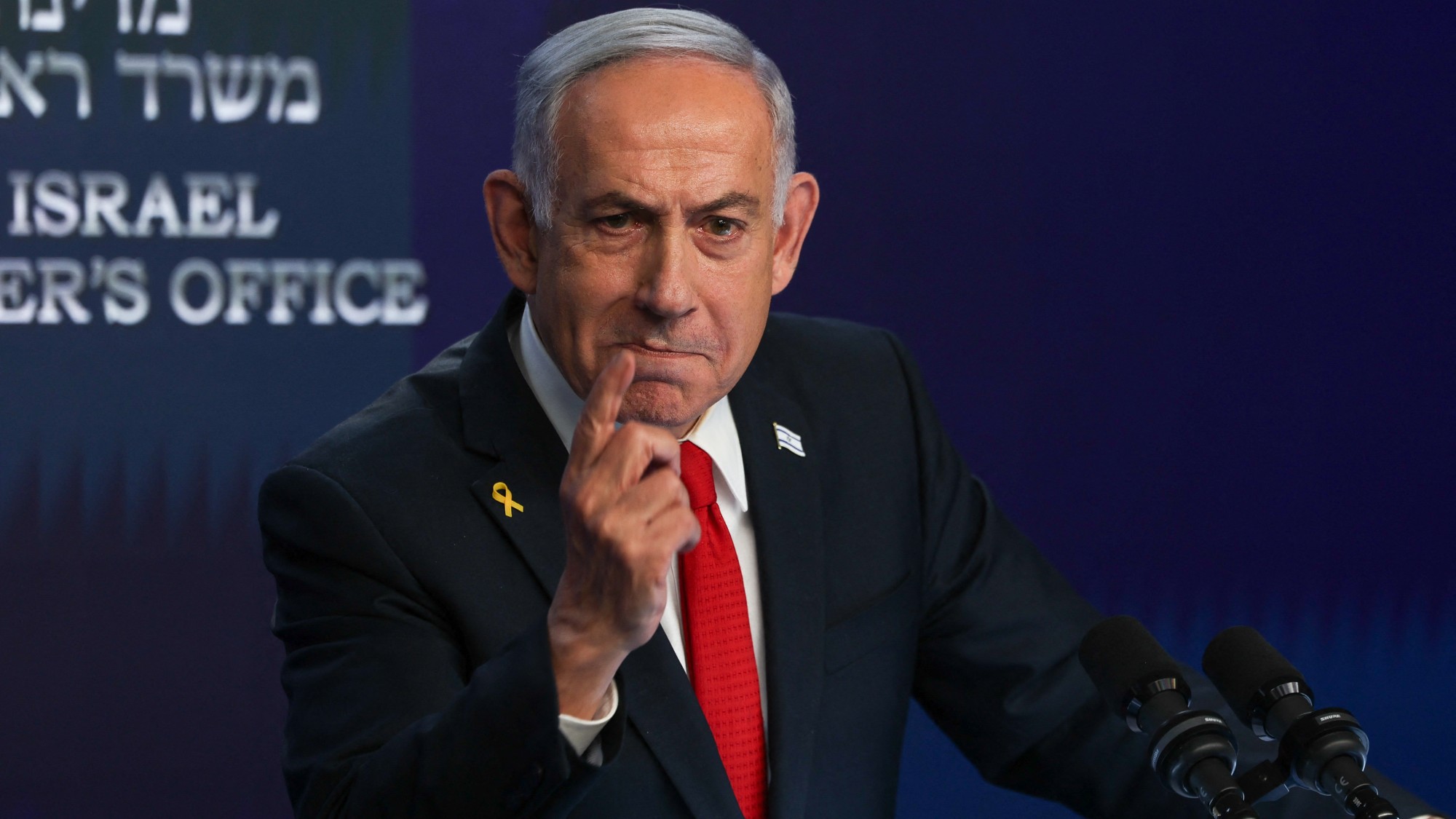 What happens if Israel attacks Iran?
What happens if Israel attacks Iran?TODAY'S BIG QUESTION Israel is 'ready to strike' and Tehran has plans for counterattacks against the US as nuclear talks appear deadlocked
-
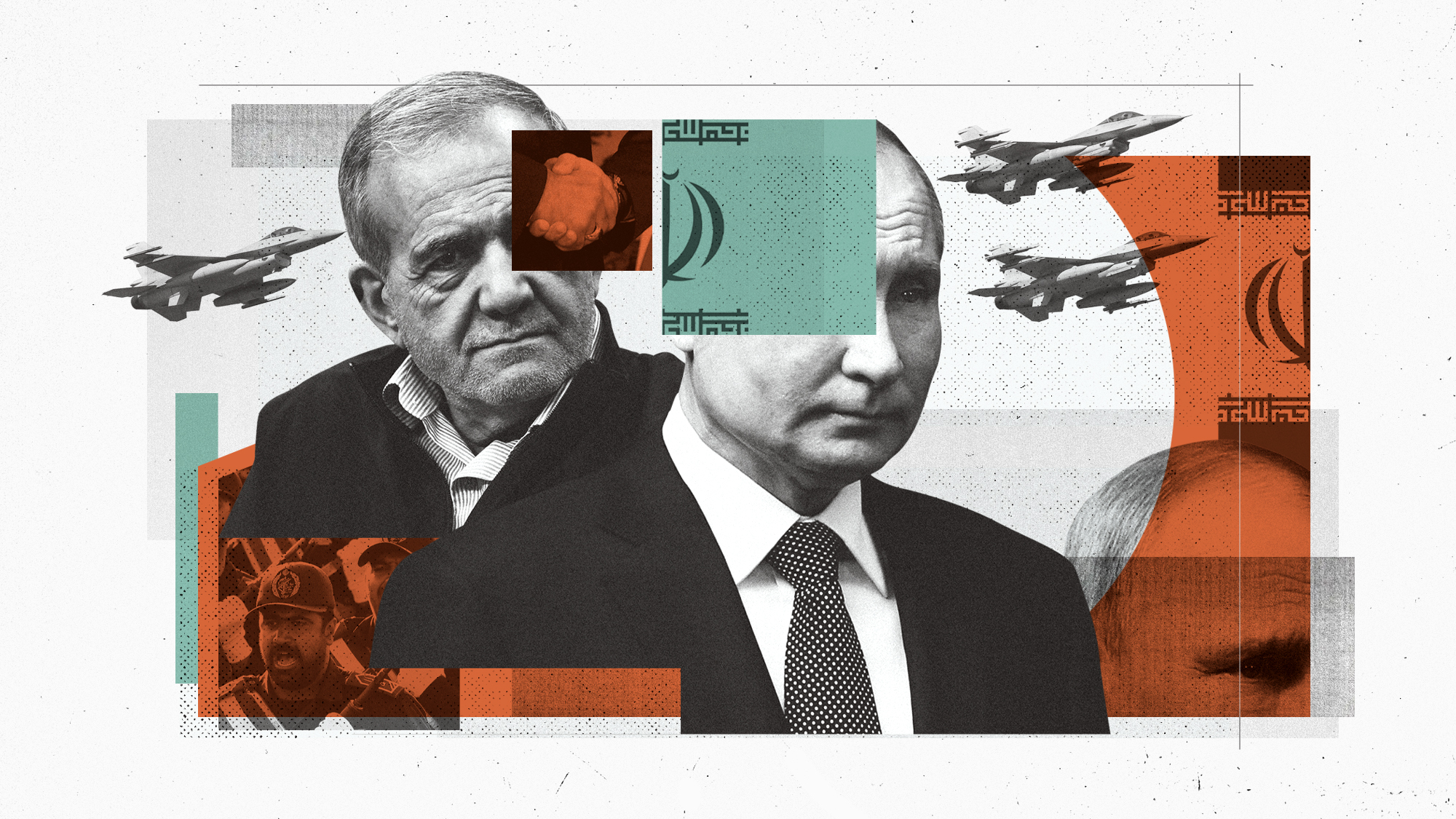 Russia and Iran 'up the ante' after meeting in Turkmenistan
Russia and Iran 'up the ante' after meeting in TurkmenistanThe Explainer Two nations talk up their closer ties but some in Tehran believe Putin 'still owes' them
-
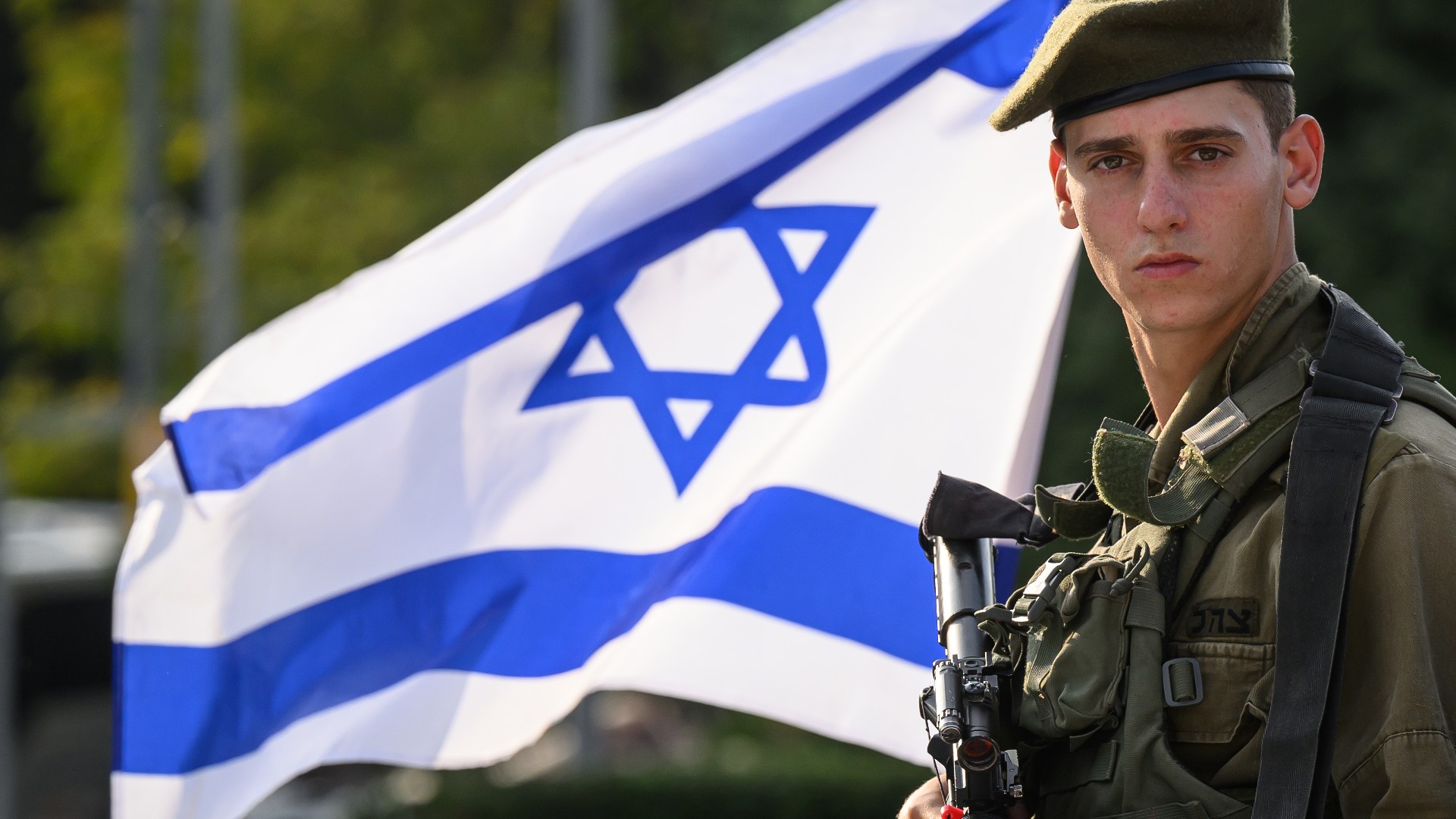 Israel's wars: is an end in sight – or is this just the beginning?
Israel's wars: is an end in sight – or is this just the beginning?Today's Big Question Lack of wider strategic vision points to 'sustained low-intensity war' on multiple fronts
-
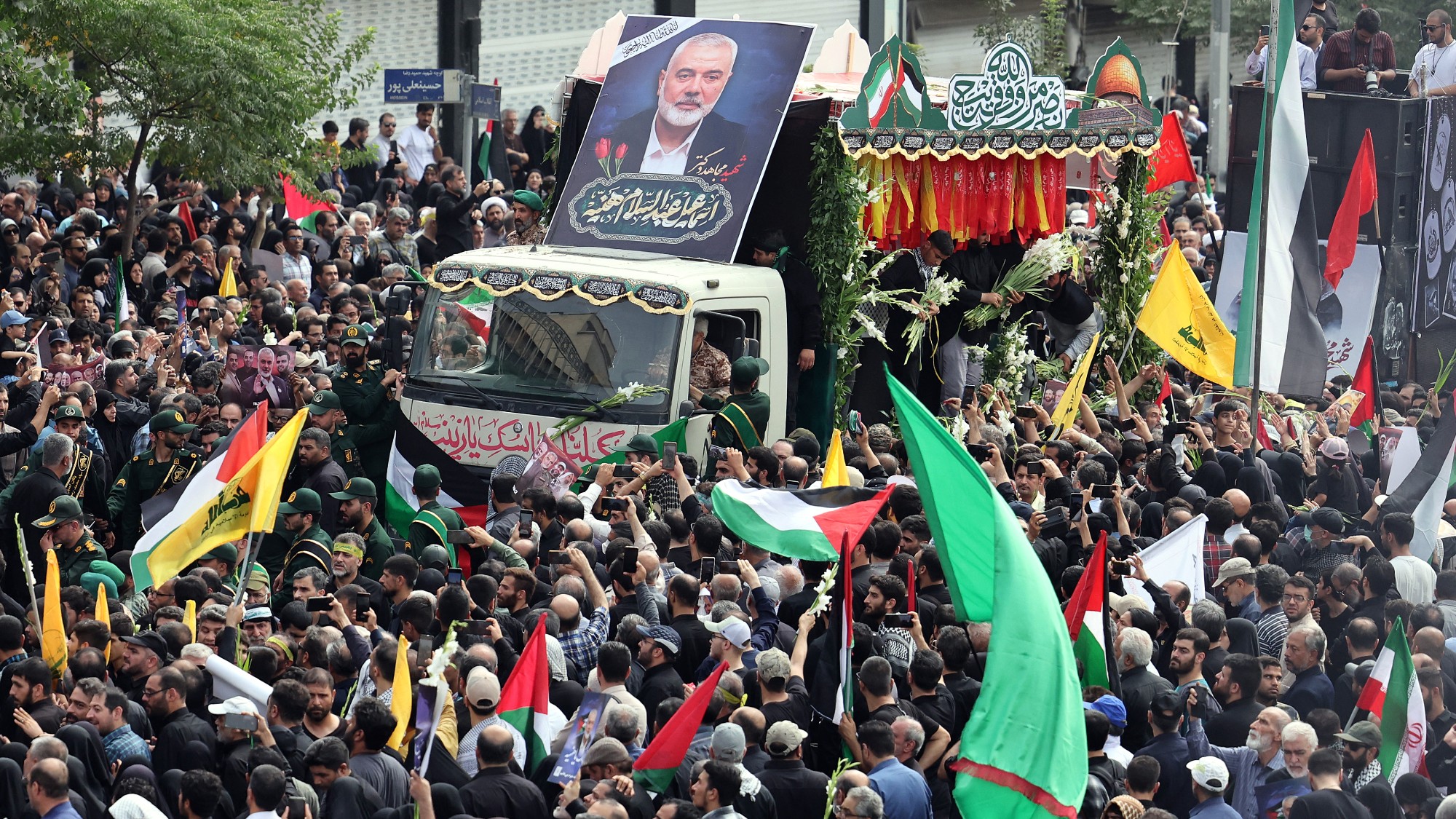 Iran and Israel: is all-out war inevitable?
Iran and Israel: is all-out war inevitable?Talking Points Tehran has vowed revenge for assassinations of Hamas and Hezbollah leaders, but Gaza ceasefire could offer way out
